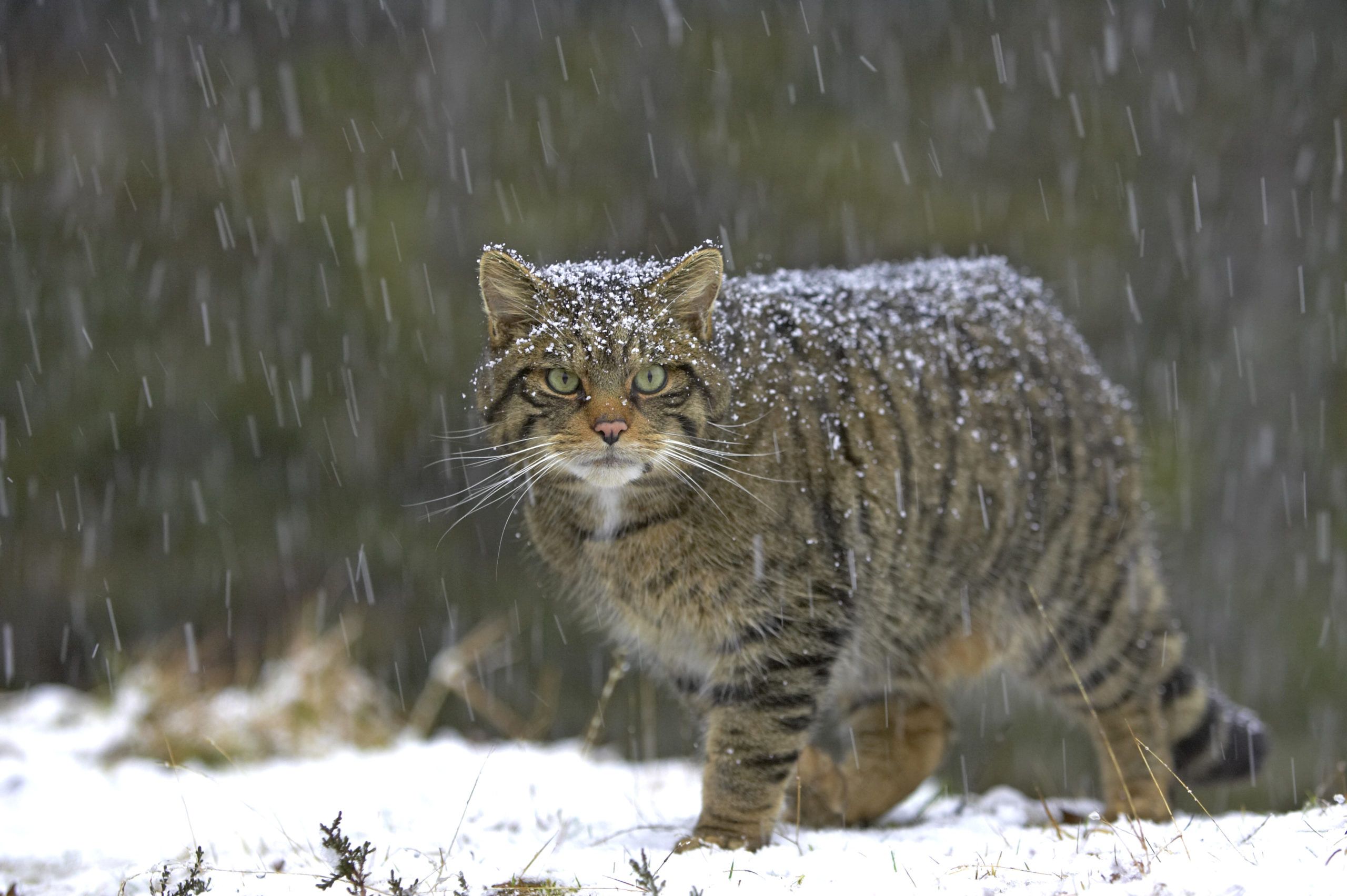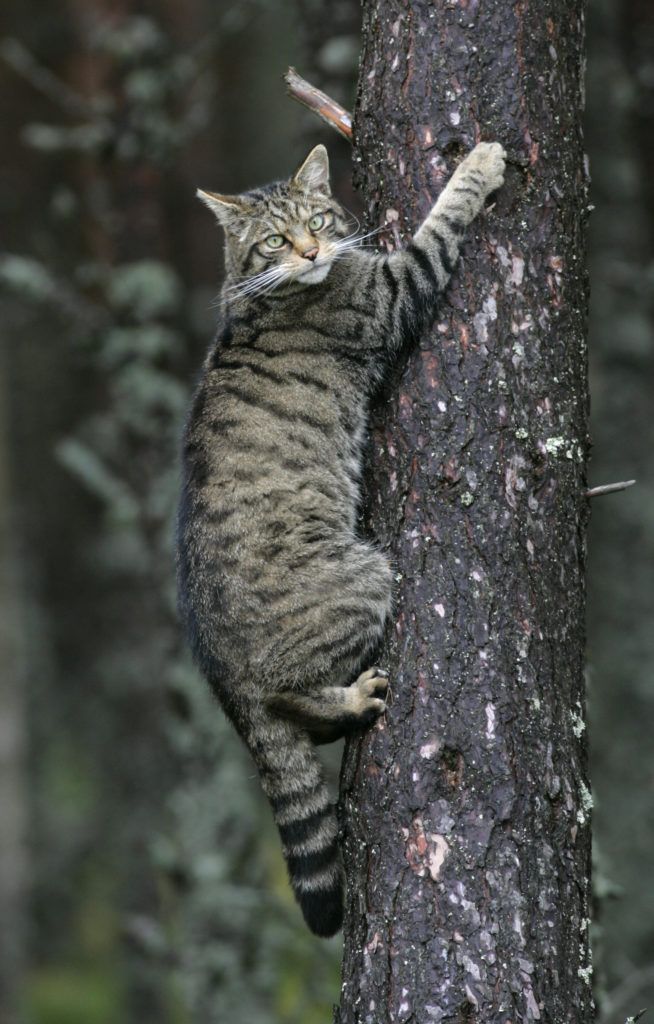Clinging on by a claw: saving wildcats from extinction

Decades of research have identified how and where to boost wildcat numbers.
The wildcat is Scotland’s rarest and most threatened mammal. Once widespread, the species is now on the brink of extinction. A sad history of habitat loss, persecution and interbreeding with domestic cats has forced the Highland tiger to a point where the population is no longer viable. Without urgent action, wildcats will be lost forever from Britain.
Wildcats in zoos, wildlife parks and private facilities now hold the key to saving their species, enabling captive-bred cats to be restored to the wild. PTES is providing funds for a critical new partnership project called Saving Wildcats. This six-year project, led by the Royal Zoological Society of Scotland, will bring about the urgent action needed to prevent wildcats from becoming extinct in the UK.
Trouble on all fronts
Having crossed over to Britain at the end of the last ice age, approximately 9000 years ago, wildcats were a widespread species, at home in our countryside. But with intensification of land use during the Victorian era and subsequent habitat loss, wildcats were eradicated from England and Wales by the late nineteenth century. More recently, one of the biggest threats to the remaining wildcat population is interbreeding with feral domestic cats.
Breeding wildcats in captivity to bolster wild populations

With so few wildcats left in the wild, it seemed as though we were facing an impossible challenge to overcome. Luckily, decades of research have identified how and where to boost wildcat numbers sufficiently.
The Saving Wildcats partnership project has built Britain’s first large-scale conservation breeding-for-release centre for wildcats, situated in a secluded part of the Cairngorms National Park. In 2022 the first kittens were born at the centre.
From June to September 2023, a total of 19 wildcats were released in remote locations within the Cairngorms Connect landscape. A soft release approach was used, which involves the animal spending an acclimatisation period in a temporary enclosure at the release location. This helps to minimise a stress response by habituating the animals to their new surroundings before the release takes place. In June 2024 camera trap footage confirmed that at least two of the females released in 2023 had given birth in the wild. This marks a significant milestone in the project’s efforts to restore the wildcat to Scotland, after the species was determined to be on the verge of extinction in 2018.
A further release of kittens born at the Saving Wildcats conservation breeding for release centre in the spring of 2023 is planned for summer 2024.
Meanwhile, the project’s field team has been busy ensuring that the right areas for release are identified each year. It’s not just about suitable habitat but also making sure the local community is enthusiastic and that any threats that could stop the release being successful, are removed. This also involves supporting a neutering programme for feral domestic cats in and around the project area. The release in 2023 and the planned release in 2024 will ensure their numbers remain resilient to pressures, and that wildcats are soon doing more than just clinging on by a claw.
This project is only possible with the invaluable support of a range of partners, funders and other contributors, including our generous donors. Can you help by donating today?
